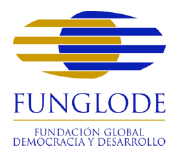
The Millennium Project Planning Committee meetings are restricted just for the Planning Committee members of the Millennium Project and special invitees. The July 2014 meeting will be held in Santo Domingo, capital city of the Dominican Republic, hosted by the Center for the Study of the Future of Fundación Global Democracia y Desarrollo, FUNGLODE, Dominican Republic Node of the Millennium Project, in the headquarters of FUNGLODE.
The Millennium Project connects futurists around the world to improve global foresight. It was founded in 1996 after a three-year feasibility study with the United Nations University, Smithsonian Institution, Futures Group International, and the American Council for the UNU. It is now an independent non-profit global participatory futures research think tank of futurists, scholars, business planners, and policy makers who work for international organizations, governments, corporations, NGOs, and universities. The Millennium Project manages a coherent and cumulative process that collects and assesses judgments from over 3,500 people since the beginning of the project selected by its 49 Nodes around the world. The work is distilled in its annual "State of the Future", "Futures Research Methodology" series, special studies, and integrated into this Global Futures Intelligence System. –
www.godominicanrepublic.com / wikipedia.org/wiki/Dominican_Republic
The host institution, FUNGLODE, will provide all internal transportation.
Please advise if there is any specific need regarding your stay and transportation while in the country.
In order to guarantee and expeditious process of arrival and departure to the airport, please provide your individual flight information to Yarima Sosa y.sosa@funglode.org
Fundación Global Democracia y Desarrollo, FUNGLODE
Capitán Eugenio de Marchena no. 26, La Esperilla, Santo Domingo
www.funglode.org
Millennium Project | Staff
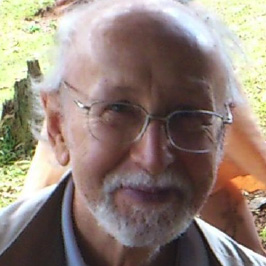
El Núcleo de Estudios do Futuro – NEF1 está celebrando este ano de 2014 sus 10 años de actividades en la Universidad. Representa en Brasil la World Future Society2 y el Projeto Milenio3; y hace parte del grupo de Universidades de seis países responsables por la organizacion anual das International Conferences on Innovation and Management – ICIM4 . El Núcleo tiene como foco principal el Desarollo Sustentable. De hecho, el mas reciente ICIM 2013 ( www.pucsp.br/icim ) fue realizado em la PUC-SP y el tema central fue “Educar para Inovar, Inovar para Sustentar” 5.
PRODUCCION ACADEMICA MAS RECIENTE
LIVROS : Biomas do Brasil: desafios e alternativas - Biomes of Brazil – Editora Brasileira de Arte e Cultura, 2014. Energias Renováveis no Brasil – Renewable Energies in Brazil- Editora Brasileira de Arte e Cultura, 2011. Educação para a Era da Sustentabilidade – Editora Saint Paul, 2011. Consciência e Desenvolvimento Sustentável nas Organizações – Editora Campus, 2009. REVISTAS: RISUS7 Journal on Innovation and Sustainability –NEF/ PUC-SP OUTROS : GPS8 – Guia para Gestão Publica Sustentável-NEF/PUC-SP BISUS9 - Boletim de Inovação e Sustentabilidade-NEF/PUC-SP BASTA10 - Boletim de Analise Estatística – NEF/PUC-SP
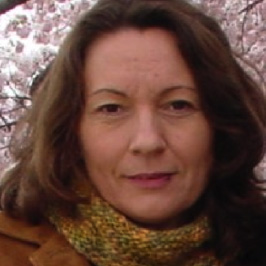
She has been with the Millennium Project since 1997. Elizabeth is contributing to the annual State of the Future reports, is a co-author of "Environmental Crimes, Military Actions, and the International Criminal Court" and "Analysis of the UN Millennium Summit Speeches", and is one of the principal investigators working on the environmental security monthly scanning reports. Previously, Elizabeth has worked in foreign trade and software development, and lived in Washington, DC (USA), Montreal (Canada), Budapest (Hungary), and Arad (Romania). She is a graduate of the Romanian Academy of Economic Studies, Faculty of Planning and Cybernetics. Elizabeth Florescu 13911 Deer Run Blvd, SE Calgary, AB, T2J 6L3 Canada Tel: 1-403-278-0528 Email: elizabeth@millennium-project.org
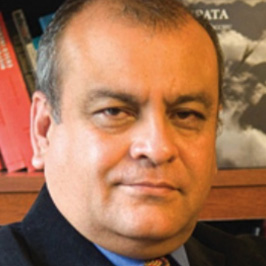
Ingeniero Metalúrgico y Siderúrgico (Universidad de Lima). Ingeniero Industrial (Universidad Nacional Federico Villarreal). Magíster en Administración (Universidad del Pacífico). Candidato a Doctor en Administración en Negocios Globales (Universidad Ricardo Palma).
Estudios de prospectiva en el APEC Centre of Technology Foresight (Tailandia) (2002) y en el Instituto PREST de la Universidad de Manchester (Reino Unido) (2003).
Ex-Director de Prospectiva e Innovación Tecnológica del CONCYTEC (2001-2013). Ex-Director Ejecutivo y Secretario General del CONCYTEC (2006-2010). Profesor e investigador en Prospectiva Tecnológica de la Facultad de Ingeniería Industrial de la Universidad de Lima (2009-presente). Profesor de la Maestría de Prospectiva para el Desarrollo Nacional de la Universidad Nacional Mayor de San Marcos (2010-presente). Profesor visitante de la Maestría de Prospectiva y Pensamiento Estratégico de la Universidad Externado de Colombia (2005-presente).
Autor del método “Challenging Futures” para la transformación de una visión del planeamiento estratégico en un escenario normativo prospectivo. Autor de “Prospectiva Empresarial: Manual de Corporate Foresight para América Latina”. Director metodológico de varios estudios de prospectiva realizados en el Perú.
Presidente de la Asociación Peruana de Prospectiva y Estudios del Futuro. Chair del Nodo Perú del THE MILLENNIUM PROJECT. Creador de los Congresos “PROSPECTA”.
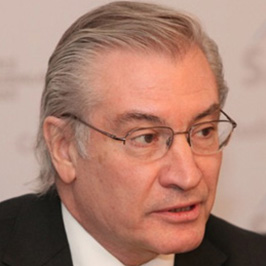
Jerome C. Glenn is the co-founder (1996) and director of The Millennium Project (on global futures research) and co-author with Ted Gordon of the annual State of the Future of the Millennium Project for the past twelve years. He was the Washington, DC representative for the United Nations University as executive director of the American Council for the UNU 1988-2007.
He has over 35 years of Futures Research experience working for governments, international organizations, and private industry in Science & Technology Policy, Environmental Security, Economics, Education, Defense, Space, Futures Research Methodology, International Telecommunications, and Decision Support Systems with the Committee for the Future, Hudson Institute, Future Options Room, and the Millennium Project. He has addressed or keynoted conferences for over 300 government departments, universities, NGOs, UN organizations, and/or corporations around the world on a variety of future-oriented topics. Recent research includes: Future Elements of the Next Global Economy, Global Energy Collective Intelligence, National Future Strategy Units, Future Education and Learning Possibilities by 2030, Global Energy Scenarios for 2020, the Future of Ethics, 2025 Science and Technology Scenarios, Middle East Peace Scenarios, and Military R&D Priorities to Reduce Health and Environmental Impacts of Nantotechnolgy.
Glenn was the Deputy Director of Partnership for Productivity International involved in national strategic planning, institutional design, training, and evaluation in economic development in Africa, the Middle East, Asia, the Caribbean, and Latin America and created CARINET in 1983 as the leading computer network in the developing world subsequently bought by CGNet. He has been an independent consultant for the World Bank, UNDP, UNU, UNESCO, FAO, UNEP, US/EPA, USAID, and several governments and corporations. He invented the "Futures Wheel" a futures assessment technique, Futuristic Curriculum Development, and concepts such as conscious-technology, transinstutions, tele-nations, management by understanding, definition of environmental security, feminine brain drain, just-in-time knowledge and learning, information warfare, feelysis, nodes as a management concept for interconnecting global and local views and actions, and coined the term futuring in 1973. Saturday Review named him among the most unusually gifted leaders of America for his pioneering work in Tropical Medicine (national Leprosy system while a Peace Corp Volunteer), Future-Oriented Education, and Participatory Decision Making Systems in 1974. He was instrumental in naming the first Space Shuttle the Enterprise and banning the first space weapon (FOBS) in SALT II.
He has published over 100 future-oriented articles in such as the Nikkei, ADWEEK, International Tribune, LEADERS, New York Times, McGraw-Hill's Contemporary Learning Series, Current, Royal Society of Arts (RSA) Journal, Foresight, Futures, Technological Forecasting, Futures Research Quarterly, and The Futurist. He is editor of Futures Research Methodology versions 1.0 and 2.0, author of Future Mind: Merging the Mystical and the Technological in the 21st Century (1989 & 1994), Linking the Future: Findhorn, Auroville, Arcosanti (1979), and co-author of Space Trek: The Endless Migration (1978 & 1979). Glenn has a BA in philosophy from American University, an MA in Teaching Social Science - Futuristics from Antioch Graduate School of Education (now Antioch University New England), and was a doctoral candidate in general futures research at the University of Massachusetts. He received the Donella Meadows Metal, Kondratieff Metal, Emerald Citation of Excellence, honorary professorship and doctor's degrees from two universities in South America (Universidad Ricardo Palma and Universidad Franz Tamayo) and is a leading boomerang stunt man.
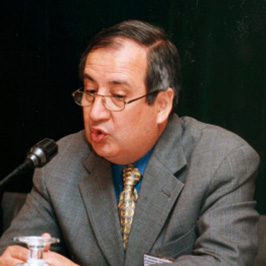
DOCTOR EN HISTORIA UNIVERSIDAD DEL SALVADOR, BUENOS AIRES ARGENTINA, 2001
GRADUADO EN DEFENSE PLANNING AND RESOURCE MANAGEMENT AT CENTER FOR HEMISPHERIC DEFENSE STUDIES. NATIONAL DEFENSE UNIVERSITY, WASHINGTON D.C., UNITED STATES, 2000
GRADUADO EN DEFENSA NACIONAL DE LA ESCUELA DE DEFENSA NACIONAL BUENOS AIRES ARGENTINA, 1975
LICENCIADO EN CIENCIAS POLÍTICAS Y SOCIALES UNIVERSIDAD NACIONAL DE CUYO, MENDOZA, ARGENTINA, 1971
Docente y consultor en asuntos internacionales en universidades nacionales e internacionales. Profesor en diversas universidades argentinas: Buenos Aires; del Salvador; Católica Argentina; Nacional de La Plata; Nacional de Cuyo; Nacional de Lomas de Zamora, de San Juan; etc. Editor de publicaciones universitarias y revistas especializadas en temas de América Latina y ciencias: Tecnología y sociedad; Revista de Ciencias Económicas; América Latina Siglo XXI Organizador de reuniones, seminarios, congresos y cátedras internacionales en América y Europa (Argentina, Uruguay, España, Austria, Estados Unidos) Participación en reuniones y conferencias en Sudamérica, Europa, Medio Oriente, América del Norte y del Sur.
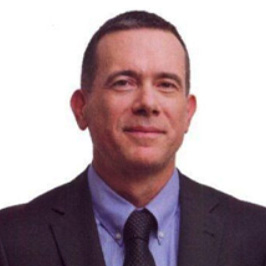
Milan Marić is Chair of the Montenegro Node of the Millennium Project and director of S&T Montenegro, an Austrian company, one of system IT integrators leaders in Montenegro and CEE. He is member of several experts group : GFS Institute, Bled Forum, MFF Think Tank, ICD Academy, AFSSA and others , His present work include Project management in : eGovernment Web Portal, eParliament Montenegro, ON line Data matching for High graduated students, On line Data Register for the Social care Montenegro, National Public PKI CA project for Montenegro Post office, UNDP Environmental Protection Agency, ON line ID scanning and TeleMontenegro, for the Montenegro Ministry of Science – a web-portal connecting Montenegrins from the country and abroad.
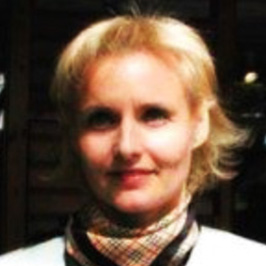
Diploma from University of Pennsylvania, specialising in distance education, from September/ 1994 to June/ 1995 Master of Political Sciences, major: national economics, University of Turku, from Septem- ber/1984 to May/ 1991
Since 1998 I have focused on issues of futures studies and networking between universities. This covers futures studies higher education and research carried out together with universities and university campuses. I have been active at the Finland Futures Academy (FFA) at the Finland Futures Research Centre (FFRC) since the establishment of the FFA, Feb. the 2nd 1998. Current- ly, I am the coordinator of the FFA, a co-operation network of 10 Finnish universities (except a sabbatical leave during 2007-09).
Core competences
• Futures studies higher education with general knowledge of the origin and state of futures research and understanding of core content fields and paradigms.
• General knowledge about main fields of applied research in futures studies
• Organised and occasional co-operation and networking between universities, recognizing administrative possibilities and obstacles of co-operation both nationally and internation- ally
• Education planning and co-operation, e.g. university-specific and joint programmes
• Different learning modes varying from real to virtual worlds
• Experience of generating, evaluating and presenting research papers and study outputs, experience on chairing research workshops and researcher meetings
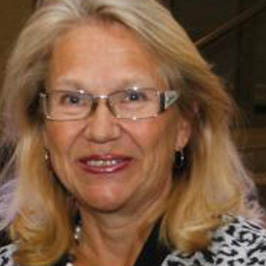
Sirkka Heinonen (b. 1953) has long experience and expertise in futures research. Her projects focus on technology foresight, the future of cities and rural areas, information society, sustainable development, ambient intelligence, social media, future work, construction and housing, future of transport and mobility, lifestyles, and philosophy of technology. She reported on the state-of-art and scope of futures research in other countries to help organise Finnish futures studies in the 1980s. In the late 1990s and again in 2008 she was involved in preparing the Finnish Government's Futures Report to the Parliament (climate and energy scenarios), and in renewing the Finnish National Strategy for Information Society.
Prof. Heinonen has expertise in studying the perceptions of time, futures thinking, technology and nature within the framework of history of ideas, and anticipating the impacts and risks of technology on society. After working for over 20 years as a futures researcher at VTT Technical Research Centre of Finland, she is now Professor of Futures Research developing methodologies and conducting research at Finland Futures Research Centre (FFRC), University of Turku. She is Director of the Helsinki Office of FFRC and heads the Research Group of Media and Communications (FMC).
Her aim is to promote futures learning and futures consciousness in Sustainable Knowledge Society, catalysing innovative solutions to global challenges amidst social and technological change. She has introduced the concepts of "Creative Foresight Space" and "Futures Cliniques", and is involved in developing foresight methodologies such as scanning of weak signals and black swans/wild cards. She is also in charge of the International Master’s Programme in Futures Studies (120 ects) at University of Turku. She is President of the Finnish Society for Futures Studies, Member of the Club of Rome, and Chair of the Helsinki Node of the Millennium Project. She is member of the pre-selection committee of the Finnish Millennium Technology Prize (MTP). In October 2013 she was appointed as Guest Professor for University of Science and Technology (USTC) in Hefei, China (for 2013-2016).
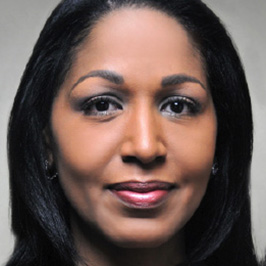
Bachelor degree Cum Laude in law, Pontificia Universidad Católica Madre y Maestra, PUCMM, Santo Domingo; bachelor in business and Magister in Arts in Political Science, International Relations and Comparative Change Utah State University; Certificate in Strategic Foresight from the University of Houston. .
Assistant to the President of the Dominican Republic, Leonel Fernández (2004 – 2008, 2008 – 2012) and Director of the Presidential Bureau of Social Services (2008 – 2012), and special advisor for international affairs.
Founder of Grupo de Gestión e Inversión, GGI S.R.L., a legal an consulting firm specializing in international commerce, corporate law, private investment, and technology law.
Founder and Director of the Center for the Study of the Future, Fundación Global Democracia y Desarrollo, FUNGLODE, (Santo Domingo) since 2009. Member of the Board of the Latin American Studies Association (ALACIP) from 2006 – 20010, and Member of the International Advisory Committee of the International Federation of Multimedia Agencies (IFMA).
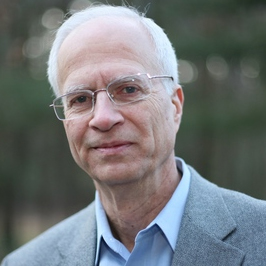
Prior to his current position, he led Deloitte Consulting’s Scenario Practice as a Firm Director; before that, he worked for The Futures Group, leading the Strategy Practice for over ten years. He has led and worked on projects for FSG and its predecessors in the areas of marketing strategy, customer service, interagency strategic planning, post-9/11 business continuity, research strategy for pharmaceuticals, telecommunications growth strategy, and strategies for financial, automotive, air transportation and banking organizations.
Charles has been an advisor to top executives for over 30 years. He has helped them construct strategies that have capitalized on changes in the makeup of the customer base "pulling" their markets, and technological, regulatory, and competitive developments "pushing" the markets.
Charles has led strategy projects for some of the largest and most successful companies in the financial services, professional services, pharmaceutical, automotive, air transportation, telecommunications, and technology industries. Prior to entering consulting, as Vice President of Corporate Development for Hasbro, he had corporate responsibility for strategic planning, mergers and acquisitions, and investor relations. During his tenure, Hasbro was the largest and most successful company in its field, and enjoyed the highest 10-year return to investors of any Fortune 500 firm. Earlier, working for Toro, he thought up the famous “Sno Risk” program, in which buyers were guaranteed rebates if snowfall fell below 50% of historical averages; Toro gained some 22 points of market share in the year of its introduction.
Charles has an MBA from the University of Chicago and an MSc in economics from the London School of Economics. He also graduated magna cum laude in Marketing from Lehigh University. He has written extensively on planning, strategy and the forces for change for such publications as Management Review, Best’s, Planning Review, Airline Business, Journal of Business Strategy, Chemical Management Review, and other publications. He has been quoted in The Wall Street Journal, Business Week, and numerous newspapers. He has also been a featured or keynote speaker throughout the U.S. and Europe.
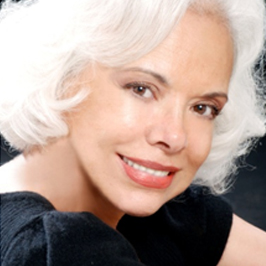
Licenciada en Ciencias Diplomáticas por la Universidad Nacional Autónoma de México, dónde también cursó simultáneamente algunos años de la carrera de Derecho. Posteriormente se especializó en evaluación social de proyectos de inversión, comercio exterior, planeación y comercialización inmobiliaria, planeación estratégica, estudios prospectivos y procuración de fondos.
Ha trabajado alternativamente en los sectores público y privado, en México y el extranjero, ocupando diversos cargos desde subjefe hasta directora general y presidenta. Habla español, inglés, francés e italiano. Actualmente es Presidenta del Nodo Mexicano, El Proyecto del Milenio, A.C., asociado a la ONU, Líder del Grupo de Futuros Globales del Consejo Mexicano para Asuntos Internacionales, Mexican Chair del Millennium Project y Vicepresidenta Mundial del Consejo Directivo del Millennium Project.
Dentro de las principales instituciones en las que ha trabajado figuran: la Secretaría de Relaciones Exteriores, el Consejo Nacional de Turismo, el Centro Nacional de Productividad, el Instituto del Trabajo, el Fideicomiso Bahía de Banderas, Consultores en Desarrollo Turístico, Servicios de Consultoría, Grupo Seconsa, Cie en Chile, en la Secretaria de la Reforma Agraria en el Fideicomiso Fondo Nacional de Fomento Ejidal, en la Secretaría de Hacienda y Crédito Público en: Servicios de Almacenamiento del Norte y en el Nodo Mexicano. El Proyecto del Milenio, A.C.
Ha dictado más de 1000 conferencias en todo el mundo y ha realizado:
* Estudios
Más de 200 estudios de: factibilidad técnico-económico y financieros, mercado, comercio exterior y comercialización estratégica para promover inversiones en todo México para el gobierno federal, Estados de la República, confederaciones, cámaras, asociaciones, empresas privadas y campesinos.
Creadora de La Bolsa de Tierra Social en México.
En materia prospectiva, creadora, directora y realizadora de FUTUROS, el primer Diccionario enciclopédico mundial sobre prospectiva, más de 50 Rondas Delphi y coautora de Escenarios de Latinoamérica 2030.
* Comercialización
o Inmobiliaria
Bahía de Banderas. Todos los inmuebles del FIFONAFE en la República Mexicana y las grandes bodegas graneleras del país der SERANOR en Sonora y Sinaloa.
o Productos
Importación, exportación, representación y venta de diversos productos.
* Actividades editoriales
Articulista, editora y comercializadora de revistas de negocios, coeditora del Mundo de la Exportación y FUTUROS.
* Relaciones públicas y eventos especiales
Planeación, programación y organización de más de 300 eventos nacionales e internacionales en México y diversas partes del mundo. Ha creado metodologías para la organización de eventos y el lanzamiento de la Bolsa Agropecuaria Mexicana.
* ONG’s, Fundaciones y ONU
Creación, registros, generación de proyectos, operación y promoción nacional e internacional de organizaciones no gubernamentales y fundaciones en la Organización de las Naciones Unidas.
Creadora y promotora nacional y mundial del Premio del Milenio 2005-2009 y del Premio del Milenio Mundial, Los Retos del futuro, 2006-2010 con cobertura mundial en 110 paises del mundo.
Ha sido la Procuradora Oficial de Fondos para 2 Conferencias Mundiales de la ONU en 2009 y 2010 realizadas en México.
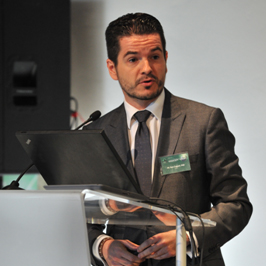
Ibon Zugasti, M.S. is Partner/Director at PROSPEKTIKER (www.prospektiker.es),General Manager at LKS Market Research (www.lks.es),Chairman of the Millennium Project Node in Spain (www.proyectomilenio.org),President of the European Regional Foresight College (www.foresight-college.eu) and National coordinator in Spain for the PREPARE Network (www.prepare-net.com).
Since 1999, Ibon has led several consultancy and research projects in fields like foresight, regional sustainable development, labour &training and energy for different Governments and Corporations (Repsol, Iberdrola, Guggenheim, MONDRAGON,...). He has also advised the Committee of the Regions of the EU for the launching of a European Platform on Territorial Foresight. Since 2010, he is the Chairman of the Millennium Project in Spain and President of the European Regional Foresight College.
He is coauthor of different publications such as Latin America 2030: Delphi Survey and Scenarios (The Millennium Project), An initial assessment of territorial forward planning/foresight projects in the European Union (Committee of the Regions of the EU), and The aging Basque population. Economic and social consequences (Basque Government). He also contributes to the yearly publication State of the Future by the Millennium Project.
Ibon earned his Bachelor of Arts in Business Administration from the University of Deusto, Spain and earned his Master’s in Strategic Management from Marquette University, Milwaukee, USA. He has been teaching strategic management at the University of Deusto and foresight in many seminars at the international level.
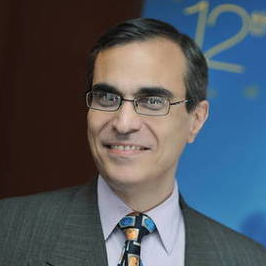
José Luis Cordeiro, MBA, Ph.D. is a world citizen in our small planet in a big unknown universe. He was born in Latin America, from European parents, was educated in Europe and North America, has worked extensively in Africa, Asia, Europe, and the Americas. He has studied, visited, and worked in over 130 countries in 5 continents.
José studied at the Massachusetts Institute of Technology (MIT) in Cambridge, USA, where he earned his Bachelor of Science (B.Sc.) and Master of Science (M.Sc.) degrees in Mechanical Engineering, with a minor in Economics and Languages. His thesis consisted of a dynamic modeling for NASA’s Freedom Space Station (the International Space Station of today). He later studied International Economics and Comparative Politics at Georgetown University in Washington, USA, and then obtained his Masters of Business Administration (MBA) at the InstitutEuropéen d’ Administration des Affaires (INSEAD) in Fontainebleau, France, where he majored in Finance and Globalization.
During his studies, he worked with the United Nations Industrial Development Organization (UNIDO) in Vienna, Austria, and with the Center for Strategic and International Studies (CSIS) in Washington, USA. He started his doctoral work at MIT, which he continued later in Tokyo, Japan, and finally earned his Ph.D. at Universidad Simón Bolívar (USB) in Caracas, Venezuela. He is a lifetime member of the Sigma Xi (ΣΞ, Scientific Research) and Tau Beta Pi (ΤΒΠ, Engineering) Honor Societies in North America, is also a honorary member of the Venezuelan Engineers College (CIV), and his name has been included in the Marquis Edition of Who’s Who in the World.
Following his graduation, he worked as an engineer in petroleum exploration for the French company Schlumberger. For several years, he served as an advisor for many of the major oil companies in the world, including Agip, BP, ChevronTexaco, ExxonMobil, PDVSA, Pemex, Petrobras, Repsol, Shell, and Total. Later, in Paris, he initiated his relation with the international consulting company Booz-Allen & Hamilton, where he specialized in the areas of strategy, finance and restructuring. In Latin America, he has served as an advisor for some of the most important regional corporations and has taken part in the transformation and privatization of a number of oil companies in the continent. His experience and studies in monetary policy, currency boards, dollarization and monetary unions have taken him to participate in several monetary changes in Latin America and Eastern Europe.
José is chair of the Venezuelan Node of the Millennium Project, Visiting Research Fellow at the Institute of Developing Economies (IDE — JETRO) in Tokyo, Japan, and Teaching Fellow at Singularity University (SU) in Silicon Valley, USA. He is also an independent consultant, writer, researcher, professor and “tireless traveler”. He has lectured as an Invited Professor at several major institutions, from MIT in the USA and Sophia University (上智大学) in Japan to the Institute for Higher Studies in Administration (IESA) and the Central University of Venezuela (UCV), where he created the first formal courses of Futures Studies (“Prospectiva”) and Austrian School of Economics in Venezuela.
José is founder of the World Future Society (Venezuela Chapter), director of the Single Global Currency Association (SGCA) and the Lifeboat Foundation, cofounder of the Venezuelan Transhumanist Association and of the Internet Society (ISOC, Venezuela Chapter), board advisor to the Center for Responsible Nanotechnology (CRN), member of the Academic Committee of the Center for the Dissemination of Economic Knowledge (CEDICE), the World Future Society (WFS) and the World Futures Studies Federation (WFSF), former director of the World Transhumanist Association (WTA, Humanity+), the Extropy Institute (ExI), the Club of Rome (Venezuela Chapter, where he was active promoting classical liberal ideas) and of the Association of Venezuelan Exporters (AVEX), where he participated in the original negotiations of the Free Trade Area of the Americas (FTAA). He has also been advisor to the Venezuelan Business Association (AVE) and other companies and international organizations.
Thanks to his extensive work in technological foresight, futures studies, globalization, economic integration, long-term development, energy, education and monetary policy, he has authored and coauthored several books. El DesafíoLatinoamericano, his first book, is a continental bestseller originally published by McGraw-Hill and is used in more than 100 universities in the hemisphere (see introductory pages). Its second Spanish edition is now available completely free in electronic form by the author, who is also donating his book royalties.
Arturo UslarPietri, the most universal and respected Venezuelan of the 20th century, described other two books of José with the following words: “as important to Venezuela as the independence battle of Carabobo” (The Great Taboo) and “an impressive work that describes the grave economic malady … of Venezuela” (La SegundaMuerte de Bolívar).
José has authoredotherbooksabout Ecuador (La Segunda Muerte de Sucre) and Mexico (¿Pesos o Dólares?), and aboutspecialtopicslikeeducation (Benesuela vs. Venezuela), energy (Energía para el Desarrollo de América del Sur and Cenários Energéticos 2020, in Portuguese), and transhumanism (2020: Transhuman&Economy of theFuture, in Korean). He has written more than 10 books and co-written over 20 more in five languages, including sections of the State of the Future by the Millennium Project.
He has a fortnightly opinion column in the largest and most prestigious Venezuelan general newspaper (El Universal) and has also written and has been interviewed in major media (press, radio and TV) including ABC, BBC, CNN, ChosunIlbo (Korean Daily), El Comercio (Ecuador), El Comercio (Peru), El Tiempo (Colombia), El Universal (Mexico), El Universal (Venezuela), Los Andes (Argentina), O Estado de Sao Paulo (Brazil), Mainichi Shimbun (Japan Daily News), La Tribune (France), The New York Times, Univision, and The Washington Times (USA).
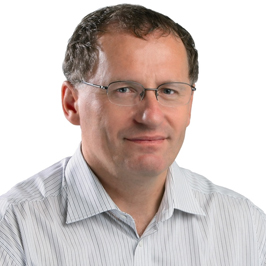
|
Head of Department of Development Studies, Faculty of Science, Palacky University |
|
Responsible for bachelor´s, master´s and PhD program “International Development Studies” |
|
1998 - 2007 |
|
Director of the Center for Interdisciplinary Studies, Palacky University |
|
Interdisciplinary research – environment and development studies |
|
1990 - 1998 |
|
Assistant Proffessor at the Department of Ecology, Faculty of Science, Palacky University |
|
Teaching of global environmental issues, Landscape ecology and Sustainable development |
|
1985 - 1990 |
|
Researcher at the Institute of Landscape Ecology, Slovak Academy of Sciences, Bratislava |
|
Research in landscape ecology, land use and landscape planning |
|
Sustainable development, Global environmental Issues, Future oriented studies, Development studies |
|
Nováček, P. (2013): Thinking oriented towards the future – key to prosperity and sustainable development? Foresight, Vol. 15, No. 5, (in print) Nováček, P. (2013): Příspěvek k rozvojové geografii – srovnávací studie Bhútánu, Haiti a Rwandy. In: Geografický časopis 65 (2013) 1 Nováček, P. (2013): Human Values Compatible with Sustainable Development. In: Journal of Human Values, 19(1), 5 – 13, SAGE Publications, London Nováček, P. (2013): After Rio+20: Preparing for Sustainable Retreat? Quaestiones Geographicae 32(1), Bogucki Wydawnictwo Naukowe, Poznaň, pp 55 – 60 Nováček, P. (2013): Rethinking sustainable development – a challenge for the post Rio+20 Process. In: Polish Geographical Review (Przeglad Geograficzny), 85, 1, pp. 5 - 14 Nováček, P. (2011): Sustainable Development. Palacky University Press, Olomouc, 428 pp. |
|
Nováček, P., Schauer, T., eds. (2010): Learning from the Futures. Palacky University Press, Olomouc, 228 pp. |
|
Nováček, P., Mederly, P. (2002): Global Partnership for Development. Millennium Project, Central European Node. Washington, D.C., Olomouc, 106 pp. |
|
Nováček, P., Mederly, P., Armand, P., Skácelová, I. (2007): Marshall Plan for Haiti: initial project of the global partnership for development. Foresight, Vol. 9, No. 1, p. 59 - 66 |
|
Mederly, P., Nováček, P., Topercer, J. (2003): Sustainable Development Assessment. Quality and Sustainability of Life Indicators at Global, National and Regional Level. Foresight, Vol. 05, No 5, p. 42 - 49 |
|
Nováček, P. (2003): A Proposed Global Partnership for Development. Futures Research Quaterly, Volume 19, No 3, p. 63 – 77 |
|
Mederly, P., Nováček, P., Topercer, J. (2002): How to Measure Progress Towards Sustainability. The Sustainable Development Index. Futures Research Quaterly, Volume 18, No 2, p. 5 – 24 |
|
Nováček, P. (2001): Do We Need a Global “Marshall Plan”? Futures Research Quaterly, Vol. 17, No 1, p. 61 – 67 |
|
Nováček, P. (2000): A Sustainable Future for the Czech Republic: Transition and Human Values. Foresight, Vol. 02, No 03, p. 313 – 321 |
|
Nováček, P., Mederly, P. (1995): Czech and Slovak Studies of Sustainable Development. Ekológia (Bratislava), Supplement, 14, No. 1, p. 79 - 85 |
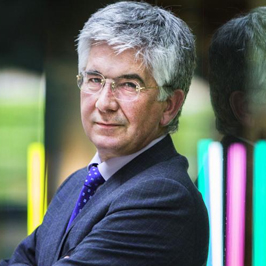
Philippe Destatte is the Director General of The Destree Institute (European think-tank and research centre in Wallonia, Belgium). He is an Associate Professor at the University of Mons (History of the society and institutions) and at Paris-Diderot University, where he is in charge of the Foresight course at the Faculty of Economics. He is also teaching Foresight applied to Sustainable Development at Reims University where he is organising a seminar in that field (Faculty of Management and Economics). He acquired skills in foresight both in Paris (mostly Futuribles of which he was a board member), in the United States (Certificated in Strategic Foresight, University of Houston), as well by working on the field, in European Regions and organisations.
Philippe Destatte combines twenty years of regional development strategic policy tools experience, with theoretical analysis in the fields of governance, evaluation, innovation systems and societal paradigm shifts analysis, as well as of foresight. He worked as an expert for the OECD, the World Bank, the European Commission, the Committe of European Regions and several governments. In 2003-2004, Philippe Destatte was involved in the Blueprints for Foresight Actions in the Regions High Level Expert Group (EC DG Research K2) as coach of the Transvision Blueprint. He chaired the European Regional Foresight College from 2004 to 2012, created at the initiative of the French Republic (DATAR-DIACT). Since 2003 he has also served as Chair of the Brussels Area Node of the Millennium Project (created by the American Council for United Nations University) and member of the Board of Directors of that institution and has organized, in 2005 in Louvain-la-Neuve, an important joint conference with DG Research K2 Unit untitled The Futures of Europeans in the Global Knowledge Society. Philippe Destatte was a member of the Experts Team of the DG Regio to prepare The Guidelines for Cohesion Policy (2007-2013). Member of the Board of the Mutual Learning Platform launched in 2005 by three DGs of the Commission (Research, Regional Policy and Enterprise) and the Committee of the Regions, he has coached the Foresight Activities in that framework. He co-authored, with Dr Günter Clar (SEZ-Stuttgart), the Regional Foresight report, Boosting Regional Potential (2006). In 2011 and 2012 he was involved in the EC DG Regional Policy project Cities of Tomorrow and in the launch of the Committee of the Region Foresight Unit. Since several years he particularly invested new foresight methods applied to companies and organizations, including public services, chambers of commerce and industry and civil society.
Throughout the day
Arrival to Santo Domingo and departure to hotel
Note: Today’s events will be open only to MPPC members and special guests
8:30am Pick up at the hotel and departure to FUNGLODE
9:00am Introductions
9:30am Review Agenda
9:45am Recent Accomplishments
10:15am Current and Recent Research and Other Activities 2013-14 State of the Future Caribe 2013 conference collaboration – Beatrice Bechara Future Day Round the World 24-hour Conversation
11:00am Break and group photo
11:20am Current and Recent Research and Other Activities (continued) Egyptian Academy of Scientific Research and Technology ISIS (Integrated Synergetic Information System)
Improvements to GFIS including Mobile version
Special issue of Foresight: The Millennium Project and Beyond
edited by José Cordeiro
Azerbaijan State Economic University Futures Concepts and Methods tele-course – Fifth year of two-semester course – Elizabeth Florescu
FUTURES – Encyclopedic Dictionary – Conception Olavarrieta
PEGASUS Project and World Network of Responsible Companies, Ibon Zugasti
Latin American Regional Center for Anticipation Studies and Resilience with support from Latin American Regional Office of UNESCO, and MP Nodes
12:45pm Lunch
2:00pm Node Chairs’ reports
3:30pm Break
3:45pm Continue Node Chairs’ reports
5:00pm Adjourn
7:00pm Return to the hotel
Note: Today’s events will be open only to MPPC members and special guests
8:30am Pick up at the hotel and departure to FUNGLODE
9:00am Node Chairs’ Reports (continued)
11:00am Break
11:15am Results from MPPC RTD on priorities for MP
12:00pm Continue discussion of priorities and implementation
12:45pm Lunch
1:30pm Group Discussions (to be defined, Implementation of top related priorities from RTD, Long-range vision, Node relations, GFIS, Fundraising, etc.
3:30pm Group Discussion Recommendations
4:30pm Fundraising
5:30pm Final comments by all
6:00pm Adjourn
Note: Day’s events will be open only to MPPC members and special guests
8:30am Pick up at the hotel and departure to FUNGLODE
9:00am Futures Research Concepts and Methods Introduction to futures concepts and methods Dominican Republic State of the Future Index Global Futures Intelligence System
12:30pm Lunch
2:00pm Training in how to use the Global Futures Intelligence System
5:00pm Return to hotel
7:15pm Pick up at hotel and departure to FUNGLODE
8:00pm Conference open to the public (FUNGLODE auditorium): Launch of Spanish and English 2013-14 State of the Future
Next Big Things for the Future: Implications for Action Today
• Conscious-Technology: Jerome Glenn
• Future Security: Charles Perrottet
• Post MDG`s or new UN Sustainable Development Goals: Elizabeth Florescu
• Future-orienting a country: Sirikka Halonen
• New business/economic models: Ibon Zugasti
9:00am Pick up at the hotel
Press Interviews
Television interviews
Hour to be determined
Meeting with the Vice President of the Dominican Republic, Margarita Cedeño
Departure for World Future Society Conference in Orlando or back home
• Jose Cordeiro, Sociedad Mundial del Futuro Venezuela, Caracas, Venezuela
• Philippe Destatte, Director, The Destree Institute, Namur, Wallonia, Belgium, Brussels-Area Node Chair
• Miguel A. Gutierrez, Globalization, Inter Universities relations, Buenos Aires, Argentina
• Arnoldo Jose de Hoyos, PUC-SP Sao Paulo Catholic University, Sao Paulo, Brazil
• Milan Maric, Director, S&T Montenegro, Podgorica, Node Co-Chair
• Pavel Novacek, Palacky University, Olomouc, and Charles University, Prague, Czech Republic
• Concepcion Olavarrieta, Nodo Mexicano. El Proyecto Del Milenio, A.C., Mexico City, Mexico
• Charles Perrottet, The Futures Strategy Group, Glastonbury, CT, USA
• Ibon Zugasti – Prospektiker, Instituto Europeo de Prospectiva y Estrategia
• Fernando Ortega, President of the Peruvian Association
of Foresight and
Future Studies; Chair of the Peruvian Node; creator of “PROSPECTA” congresses, Peru
• Sirkka Heinonen, Director of Helsinki Office, University of Turku
Finland Futures Research Centre (FFRC), Head of Research Group on Future of
Media and Communications(FMC), Finland
• Sari Soderlund, Coordinator of The Finland Futures Academy
(FFA) (since 2001) at the Finland Futures Re- search Centre, Turku School of Economics,
University of Turku, Finland
• Beatriz Bechara de Borge, Executive Director, Observatorio del
Caribe Colombiano, Nodo del Caribe, Colombia
Come and join us